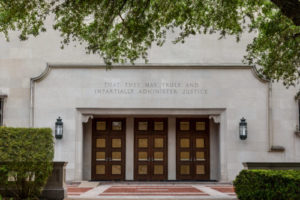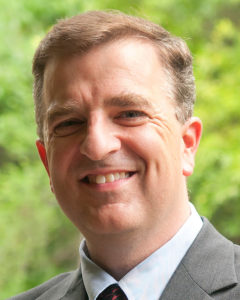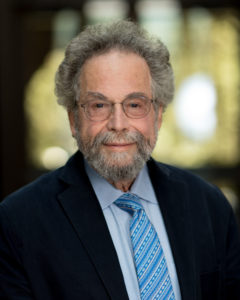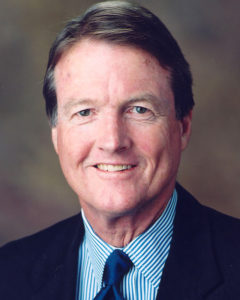This column first appeared May 10 on Misrule of Law.

I have great affection for my alma mater, the University of Texas School of Law, and am grateful for the excellent, affordable, and life-changing education I received there. I have previously reminisced about my student years (here and here), and from time to time have also offered some constructive criticism, mainly directed at the university administration as a whole, particularly regarding the leadership of UT President Greg Fenves (e.g., here, here, here, and here).

Lest this post be construed as an attack on UT law school, I have nothing personal against current UT law school Dean Ward Farnsworth, who is a congenial fellow and a big improvement over his predecessor, Larry Sager (2006-2011). Following the scandals that led to Sager’s resignation as Dean—involving undisclosed supplements to faculty compensation in the form of “forgivable loans” by the UT Law School Foundation (funded by private donations), including a $500,000 payment to Sager himself—Farnsworth’s arrival in 2012 seemed like a breath of fresh air. Sager’s tenure was marred by questionable conduct—he secretly doled out more than $4.6 million in “forgivable loans” to selected faculty; his wife, a lightly-regarded scholar who teaches feminist theory and other subjects [1], was unaccountably one of the most-highly compensated faculty members; and from 2007-2010 Sager incurred more than $400,000 in charges on a credit card paid by the Foundation.

Yet Sager continues to teach at UT law school, earning $350,000 a year (the fifth highest salary at the law school). His wife, Jane Cohen, earns almost $300,000 a year.
But the point of this post is not to re-hash past scandals, even though they never seem to go away: Bill Powers, despite being forced to resign as President of UT due to a preferential admissions scandal, still teaches at the law school, earning one of the top salaries (over $350,000 a year); and his former assistant, Nancy Brazzil, whom the Kroll investigation found was Powers’ accomplice [2] in facilitating back-door admissions for the unqualified friends and offspring of influential donors and legislators, was recently awarded a Presidential Citation by Fenves. Brazzil’s accomplishment? The press release states that “Brazzil has helped both Fenves and Powers with a number of strategic initiatives. She works closely with high-profile friends of the university, legislators and major donors, helping them find innovative ways to contribute to UT’s advancement.” Such as selling admissions and reversing the findings of Title IX hearing officers in exchange for donations by powerful cronies?

But back to the present. As far as anyone knows, the “forgivable loan” program for faculty members is defunct, the preferential admissions for cronies has ended, and the stink of corruption that used to pervade UT law school has abated. Or has it? The Texas Tribune, a patronage-funded “news organization” which receives funding from UT, recently broke a story, headlined “Former University of Texas law school official arrested as part of ongoing fraud investigation.” Texas Tribune, usually a “friendly” source when reporting about UT, was uncharacteristically candid:
"A former director at the University of Texas at Austin’s law school was arrested Thursday for claiming he was showing up for work while he was actually galavanting in tourist hot spots like Cozumel, Las Vegas and the U.S. Virgin Islands, according to court documents and local law enforcement authorities."
Jason Shoumaker, the law school’s facilities director until November 2017, is the subject of an ongoing probe by the Travis County District Attorney’s Office and the Texas Rangers. Though Shoumaker was taken into custody Thursday over tampering charges, he is at the heart of a major fraud investigation – one that potentially involves “several million dollars of questionable expenses,” a source familiar with the probe said.
The story continued:
"The District Attorney’s office began investigating Shoumaker in August at the behest of university officials, who alleged he had committed fraud during his time at the UT law school, the state’s most prestigious. Shoumaker – who was paid an annual salary of $80,000 before his firing – was placed on administrative leave in July 2017, after a string of internal complaints about his performance and chronic absenteeism."
As early as the spring of 2016, a supervisor said Shoumaker had “started to not be around” and “didn’t seem to be doing his job anymore,” according to the affidavit.
University auditors, managers and executives all accused Shoumaker of submitting time sheets that said he was clocking in at the law school even as his personal credit cards were being swiped in such far-flung destinations as Miami, Florida, and California, the document says.
The story concludes:
"During multiple pay periods, Shoumaker logged regular 8-hour days with the university while he was actually cavorting out of state," according to the affidavit.
"Charges between July 2016 and April 2017 included: $2,584.76 for an American Airlines flight to the U.S. Virgin Islands; $609.02 at the Wynn Las Vegas hotel; $39.76 at Jose Cuervo Tequila in Miami, Florida; and $88.50 at a lobster grill in Saint Thomas, U.S. Virgin Islands."
After listing a fusillade of March 2017 credit card charges made in Mexico, the affidavit notes: “Based on these facts the Affiant believes Shoumaker was not at work in Austin, Texas and had no state business in Cozumel, Mexico, on the dates he claimed to have worked.”
Hired in July 2007, Shoumaker worked in UT’s College of Communication before being promoted in May 2014 to be facilities director of the law school.
One of his colleagues there, according to the affidavit, said “there were many times she was unable to find him” and that she often “‘covered [duties] for Jason,’ as co-workers sometime[s] do.”
“Everything ok?” the colleague wrote to Shoumaker on April 3, 2017, according to the affidavit.
“Yes, on my way to work,” Shoumaker texted in response. In fact, Shoumaker was likely in Las Vegas that day, the document says – citing a flurry of charges to his card that included $44.20 at a Hooters Restaurant and $81.00 for a professional massage.
Many questions remain unanswered. How does time-card fraud by an $80,000/year employee potentially involve millions of dollars of questionable expenses? Who was responsible for supervising Shoumaker? How could his frequent absence go unnoticed for so long? Why was this unfit employee “promoted” from the Communications school to the law school, and by whom? Is anyone else involved or under investigation?
The story has drawn the attention of legal gossip sites, such as Above The Law, but has otherwise flown under the radar of the news media. Inquiring alumni want to know: What’s going on at our alma mater?

Other bad news for UT law school came with the results for the February 2018 Texas bar exam, which saw a historically-low pass rate (a dismal 45% overall), with UT graduates taking the test for the first time coming in sixth place (out of 10 Texas schools) with a pass rate of 54.55%. UT, which prides itself on being the state’s premier law school, was beaten by Baylor (87.50%), SMU (76%), South Texas College of Law (70.83%), Texas A&M (67.86%), Texas Tech (66.67%), and the University of Houston (60%). With five of 11 first-time test takers failing, UT managed to beat only St. Mary’s (43.18%), the newly-launched North Texas (40%), and the perennial sad-sack Texas Southern (27.78%).
Granted, “elite” law schools feel that it is beneath them to “teach to the test” by emphasizing black letter law of the sort featured on the bar exam, but rigorous admission standards should ensure that nearly all UT graduates pass the bar exam if—as is common—they take a bar review course. This UT law alumni is dumbfounded to see his alma mater outperformed by competitors that UT proudly outranks in most national surveys. In the final analysis, however, law schools exist to teach students to be lawyers, and graduates who can’t pass the bar exam represent a failure of the school’s sole mission.

Maybe Dean Farnsworth should pay less attention to virtue signaling, promoting “diversity, and chasing after the admittedly superficial USN&WR rankings, and more time overseeing UT’s operations and preparing students for the bar exam.

[1] Professor Jane Cohen “is affiliated with an inter-disciplinary group of scientists who research bioprecipitation: the biological nucleation of ice, rain, and snow. The potential legal implications of bioprecipitation and work at the intersection of science, law, and water policy are the focus of her current scholarly work.”
[2] The Kroll report concluded that “Kroll notes that the existence of holds and watch lists, and the end-of-cycle meetings between the President’s Office and the Admissions Office, were not disclosed or specifically addressed by President Powers and his Chief of Staff [Nancy Brazzil] during an internal Admissions Inquiry previously conducted by the UT-System. Although President Powers and his Chief of Staff appear to have answered the specific questions asked of them with technical precision, it appears that by their material omissions they misled the inquiry. At minimum, each failed to speak with the candor and forthrightness expected of people in their respective positions of trust and leadership.” In other words, Powers and Brazzil deceptively withheld information from the investigators, bordering on lying.

